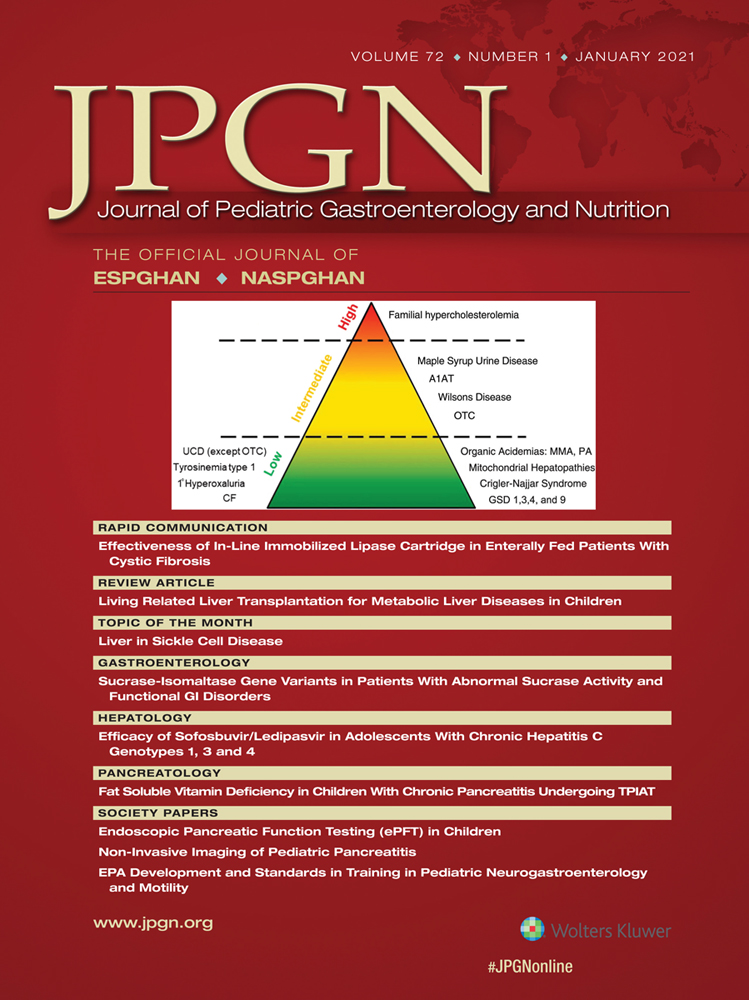Variants in the Enteric Smooth Muscle Actin γ-2 Cause Pediatric Intestinal Pseudo-obstruction in Chinese Patients
Supplemental digital content is available for this article. Direct URL citations appear in the printed text, and links to the digital files are provided in the HTML text of this article on the journal's Web site (www.jpgn.org).
Drs Zhiliang Wei and Lina Lu contributed equally to this work.
Funding: This work was supported by National Natural Science Foundation of China (81974066, 81630039), Foundation of Shanghai Municipal Health Commission (Key weak discipline construction project, 2019ZB0101), Foundation of Shanghai Municipal Health Commission (shslczdzk05702), Foundation of Science and Technology Commission of Shanghai Municipality (19495810500).
The authors report no conflicts of interest.
ABSTRACT
Objectives:
Pediatric intestinal pseudo-obstruction (PIPO) is a severe gastrointestinal disorder occurring in children, leading to failure to thrive, malnutrition, and long-term parenteral nutrition dependence. Enteric smooth muscle actin γ-2 (ACTG2) variants have been reported to be related to the pathogenesis of PIPO. This study aimed to determine the presence of ACTG2 variants in Chinese PIPO patients.
Methods:
Whole-exome sequencing was performed using samples from 39 recruited patients, whereas whole ACTG2 Sanger sequencing was performed using samples from 2 patients. Published data was reviewed to determine the number of pathogenic variants and the genotype related to ACTG2 variants in the Chinese population.
Results:
A total of 21 Chinese probands were found to carry heterozygous missense variants of ACTG2, among which 20 were de novo. Fifteen probands had p.Arg257 variants (c.770G>A and c.769C>T), and the other 2 probands had c.533G>A (p.Arg178His) and c.443G>T (p.Arg148Leu) variants. Four probands had novel variants c.337C>T (p.Pro113Ser), c.588G>C (p.Glu196Asp), c.734A>G (p.Asp245Gly), and c.553G>T (p.Asp185Tyr).
Conclusions:
Variants affecting codon 257 of ACTG2 protein sequence appeared to be frequent in both Chinese and Caucasian PIPO patients, whereas p.Arg178 variants were less common in Chinese patients compared with Caucasian patients. The 4 novel variants in ACTG2 were also found to be related to Chinese PIPO.




